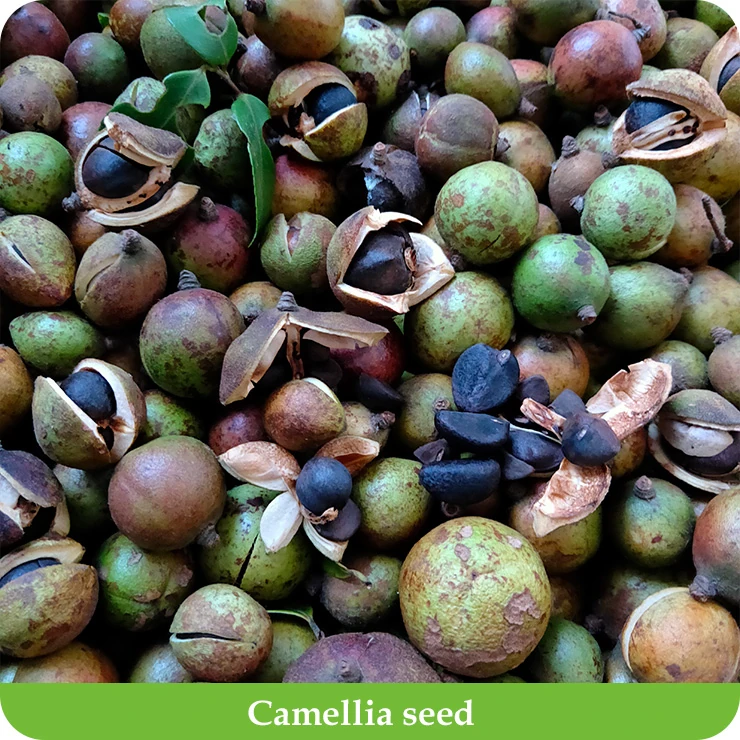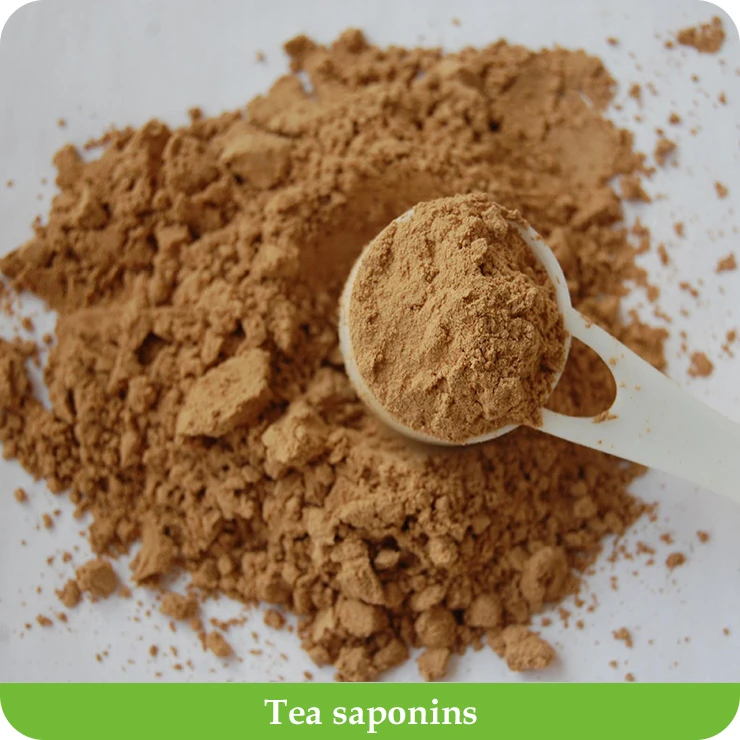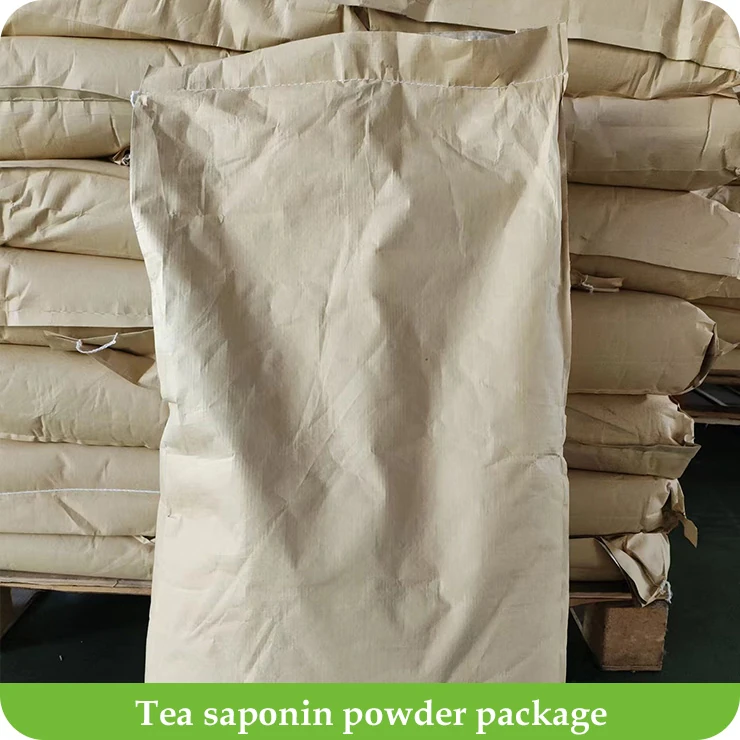What is tea saponin powder and its application in agriculture
Tea saponin powder is derived from the natural compounds known as saponins, which are found in various plants, including Camellia seed. Saponins are glycosides that can create a soap-like foam when mixed with water.

Key Points about Tea Saponins Powder:
- Source: It is primarily extracted from tea plants, particularly from Camellia seed and green tea seed.
- Camellia saponin Extraction: Tea saponin is a kind of pentacyclic triterpenoid compound extracted from tea seed meal, which has many biological functions, so it plays an important role in many industries, but its application and development are affected by low extraction rate and poor purity. The traditional extraction methods of tea saponin include water extraction, methanol extraction, ethanol extraction, n-propanol extraction, ultrasonic-assisted extraction, microwave-assisted extraction, and biological extraction.
- Properties:
- Emulsifying Agent: Saponins can stabilize emulsions, making them useful in food and cosmetic formulations.
- Foaming Agent: They create stable foams, beneficial in beverages and personal care products.
- Health Benefits:
- Antioxidant Effects: Saponins may have antioxidant properties, helping to combat oxidative stress.
- Cholesterol Management: Some studies suggest they can help lower cholesterol levels.
- Immune Support: They may enhance immune function.
- Uses:
- Dietary Supplements: Often included in health supplements for their potential health benefits.
- Food Industry: Used as a natural emulsifier or foaming agent in various food products.
- Cosmetics: Incorporated into personal care products for their emulsifying properties.
- Agricultural production: tea saponin, as a high-quality biosurfactant, can play an important role in the removal of heavy metals in soil, water, solid waste incineration, and fly ash in agricultural production and life, which has strong practical significance, conforms to our concept of sustainable agricultural development, and is a focus of our future research on the comprehensive utilization of tea seeds.
- Safety: While generally considered safe in moderate amounts, high concentrations may cause gastrointestinal discomfort in some individuals.
This product produced by Quality Herb is mainly for agricultural and daily chemical use, although it can be used in food, our specifications are not recommended.

Tea saponins powder has several applications in agriculture, owing to its natural properties. Here are some key uses:
Applications in Agriculture
- Natural Pesticide:
- Insect Repellent: Tea saponins can deter certain pests due to their toxicity to insects while being less harmful to beneficial organisms.
- Fungicide: They possess antifungal properties, making them useful in preventing fungal infections in crops.
- Soil Health:
- Soil Conditioner: Saponins can improve soil structure and promote microbial activity, enhancing nutrient availability.
- Biodegradation Enhancer: They may aid in the breakdown of organic matter, promoting healthier soil ecosystems.
- Plant Growth Stimulant:
- Root Development: Saponins can stimulate root growth, improving nutrient uptake and overall plant vigor.
- Stress Resistance: They may enhance plants’ resilience to environmental stresses, such as drought or salinity.
- Biological Control Agent:
- Pathogen Suppression: By promoting beneficial microorganisms, tea saponins can help suppress soil-borne pathogens.
- Seed Treatment:
- Enhanced Germination: Coating seeds with tea saponins can improve germination rates and seedling establishment.
- Protective Barrier: They can act as a protective barrier against pests and diseases during the early stages of growth.
Benefits
- Eco-Friendly: As a natural product, tea saponins are less likely to harm the environment compared to synthetic chemicals.
- Sustainability: Their use supports sustainable agricultural practices by reducing reliance on chemical pesticides and fertilizers.
Conclusion
Tea saponin powder offers a versatile and environmentally friendly option for enhancing agricultural practices, promoting plant health, and improving crop yields. However, further research is needed to fully understand its effectiveness and optimal application methods.

Comments
Post a Comment